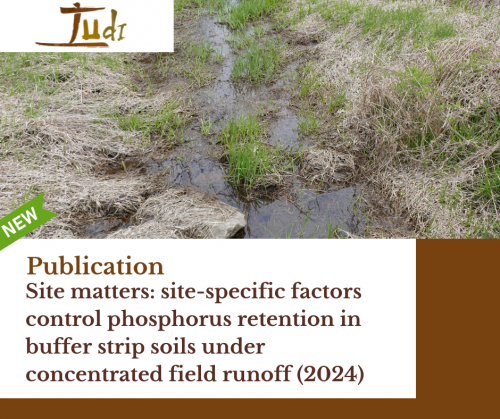TUdi Article: Site matters: site-specific factors control phosphorus retention in buffer strip soils under concentrated field runoff
Written by David Ramler and Peter Strauss, the article “Site matters: site-specific factors control phosphorus retention in buffer strip soils under concentrated field runoff” examines the impact of concentrated flow on the performance of vegetative filter strips (VFS) in managing soil erosion and nutrient accumulation, highlighting the need for site-specific designs to mitigate the risk of phosphorus buildup in these buffers.
Soil erosion from agricultural fields is a persistent ecological problem, which can lead to eutrophication - the process of gradual increase in the concentration of phosphorus, nitrogen, and other plant nutrients in aquatic habitats, which can disrupt their ecosystems. Some of the recommended mitigation measures are vegetated filter strips (VFS) as buffer zones between arable land and water bodies. However, if designed and managed poorly, nutrients - especially phosphorus - can accumulate in the soil. Ultimately, VFS can switch from being a nutrient sink to a source. This problem is further aggravated if the field runoff does not occur as a uniform sheet flow, but rather in concentrated form, as is usually the case.
To assess the impact of concentrated flow on VFS performance, the article studies soil core samples from field-VFS transition zones at six sites in Lower Austria. Results revealed that concentrated flow can lead to an accumulation of phosphorus in VFS. Phosphorus levels in the vegetative filter strips (VFS) within areas of concentrated runoff can be equal to or exceed those in the field, despite not receiving any direct fertilisation.
However, it is important to note that the concentration and distribution of nutrients in the fields and VFSs were site-specific and thus affected by local factors such as the age of VFS, cropping, and fertilisation. Therefore, there is a need for more advanced, tailored vegetative filter strip (VFS) designs that can effectively manage the unique runoff volumes and nutrient movement specific to each site.
